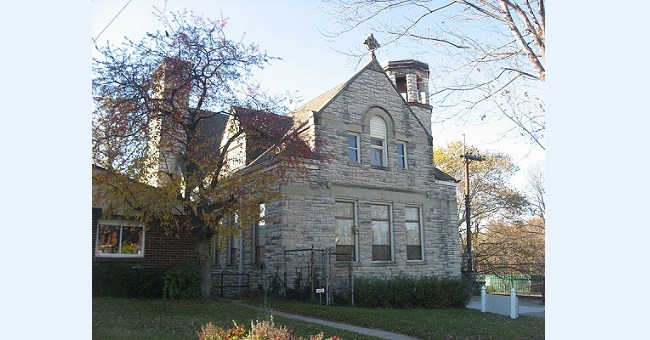by Mike Roberts, Church Historian.
The following article written by Alfred Segal appeared on the editorial page of the Cincinnati Post of January 18, 1928. It appeared under a picture of our Essex Street church and the sub-headline “After a Hundred Years in Cincinnati They Celebrate the Birthday of Their Ideal Which Becomes More and More Respected.”
The Universalists of this city are celebrating the hundredth year of their Cincinnati church this month. There never have been many of them in these hundred years. Whoever believed as they did about the purposes of human existence might join them, but they never went out to hunt for converts.
For they had no quarrels with the religions of other men and never said, “Our religion is better than yours.” They were very humble knowing there was much good, also, in other religions.
Whatever was good in the religions of other men they respected and they honored the great prophets of all religions—Jesus, Isaiah, Mohammed, Buddha and Confucius.
They built a church but they never thought of God being confined within its four walls. They thought of the world as His temple in which every man is a priest to serve at the common altar of peace and justice and righteousness. The altar is piled high with all the good that men have done and thought in all time. The Universalists put their ideals on the common altar.
Once in an age, one of these inspired prophets comes through the temple that is the world and leaves his shining banner at the altar and departs. The Universalists lifted their eyes to all these banners.
The pathway to the altar is marked by the footsteps of the prophets and these footsteps are scarcely discernable one from the other but all of them walked in one way.
The Universalists followed in these footsteps and one generation and the next took up the torch; and there were scarcely any more than a handful of them in the city.
But they were content. They did not want the power of great numbers or of wealth, being quite satisfied to be the keepers of an ideal, which they held up to the eyes of the people. It did not matter to them whether people joined their church and paid dues; it pleased them to hear of more and more people feeling as they did about religion even though they didn’t join their church. They were more concerned with the success of their ideal than of their church.
They had no creed to which to hold those who belonged, but they held a set of principles which included the universal fatherhood of God. They never had the idea that they were a select group in the world, especially favored by God, but they felt kin to all the earth of men with whom they desired to labor for the creation of a better and more beautiful world.
They said that the Bible was a revelation of the grandeur of God, but not the only revelation. History is a revelation of God; nature is a revelation of God; evolution is a revelation of God.
They acknowledged the spiritual leadership of Jesus practicing a way of life in which are peace and justice and good will and righteousness.
And so they walked a hundred years, never quarreling with other men’s faiths, respecting the good in all, honoring the prophets of all, feeling their kinship to all mankind.
And after a hundred years there are only 200 members of their church in the city, but they are content. They have seen their principles come to respect in the hearts of large numbers of people who do not belong to their church and who may not know even where their church is situated. They still prefer the success of their ideal to the success of their church.
They meet in a small church on Essex St., Walnut Hills and Reverend Robert Cummins is their leader.
Photo: Essex Street Church (former building of the First Universalist Church of Cincinnati)
Image courtesy of Nyttend via Wikipedia. Public domain.

